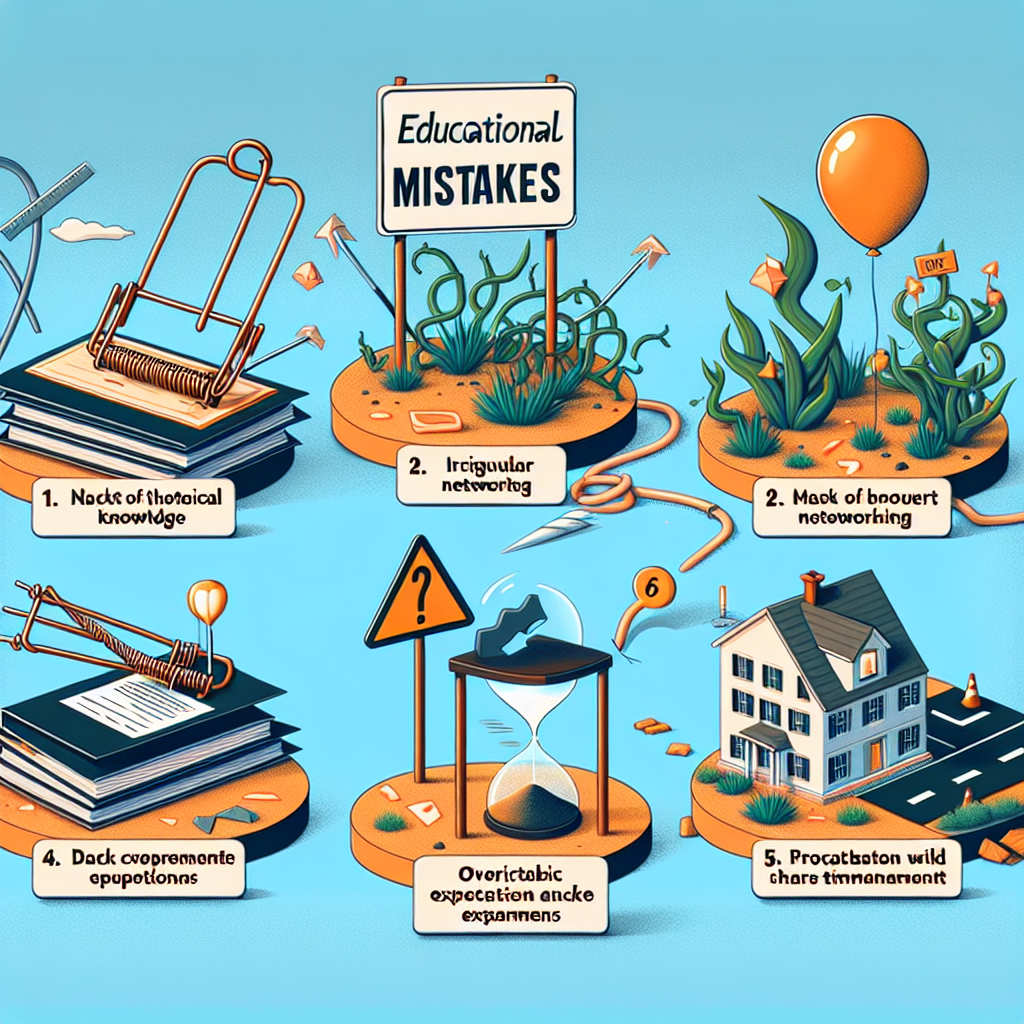Top 5 Pitfalls That Can Derail Your Real Estate Career Before It Begins
Embarking on a career in real estate can be both exciting and daunting. The industry offers lucrative opportunities, but it also presents numerous challenges that can derail your career before it even begins. Understanding these pitfalls and how to avoid them is crucial for anyone looking to succeed in real estate. This article explores the top five pitfalls that can hinder your real estate career and provides insights on how to navigate them effectively.
1. Lack of Proper Education and Training
One of the most significant pitfalls for aspiring real estate professionals is entering the field without adequate education and training. Real estate is a complex industry that requires a deep understanding of market trends, legal regulations, and negotiation tactics.
- Many new agents underestimate the importance of formal education and opt for the quickest route to obtaining a license. This often results in a lack of foundational knowledge.
- According to the National Association of Realtors, agents with advanced training and certifications earn 30% more than those without.
- Investing in comprehensive training programs and continuing education can significantly enhance your skills and credibility.
Case Study: Jane, a new real estate agent, struggled in her first year due to inadequate training. After enrolling in a specialized real estate course, her sales increased by 40% within six months.
2. Poor Networking Skills
Networking is a cornerstone of success in real estate. Building a robust network of contacts can lead to referrals, partnerships, and valuable insights into the market.
- Many new agents fail to prioritize networking, focusing solely on immediate sales instead.
- Statistics show that 64% of real estate business comes from referrals and repeat clients.
- Attending industry events, joining local real estate associations, and leveraging social media can expand your network significantly.
Example: John, a real estate agent, doubled his client base by actively participating in local business networking events and engaging with potential clients on LinkedIn.
3. Inadequate Financial Planning
Real estate careers often start with inconsistent income, making financial planning essential. Many new agents fail to budget for the initial months of low or no income, leading to financial stress.
- It’s crucial to have a financial cushion to cover personal and business expenses during the early stages of your career.
- Creating a detailed budget and setting aside savings can help manage the financial ups and downs of the industry.
- Consider consulting with a financial advisor to develop a sustainable financial plan.
Case Study: Sarah, a new agent, faced financial difficulties due to poor planning. After consulting with a financial advisor, she implemented a budget that allowed her to focus on building her client base without financial stress.
4. Neglecting Technology and Digital Marketing
In today’s digital age, technology and online marketing are indispensable tools for real estate professionals. Neglecting these can severely limit your reach and effectiveness.
- Many new agents rely solely on traditional marketing methods, missing out on the vast potential of digital platforms.
- According to a study by the National Association of Realtors, 97% of homebuyers use the internet in their home search process.
- Utilizing social media, creating a professional website, and employing digital marketing strategies can significantly enhance your visibility and client engagement.
Example: Emily, a real estate agent, increased her listings by 50% after launching a targeted social media campaign and optimizing her website for search engines.
5. Overlooking the Importance of Customer Service
Exceptional customer service is vital in real estate. New agents often focus on closing deals rather than building lasting relationships with clients.
- Providing personalized service and maintaining open communication can lead to repeat business and referrals.
- Statistics indicate that 86% of buyers would use their agent again or recommend them to others if they had a positive experience.
- Implementing a customer relationship management (CRM) system can help manage client interactions and improve service quality.
Case Study: Mark, a real estate agent, saw a 30% increase in referrals after implementing a CRM system and focusing on personalized client interactions.
Conclusion
Starting a career in real estate is a challenging yet rewarding endeavor. By avoiding these common pitfalls—lack of education, poor networking, inadequate financial planning, neglecting technology, and overlooking customer service—you can set a strong foundation for success. Investing in education, building a robust network, planning financially, embracing digital tools, and prioritizing customer service are key strategies that will not only help you launch your career but also sustain it in the long run. Remember, the path to success in real estate is paved with continuous learning and adaptation to the ever-evolving market landscape.



